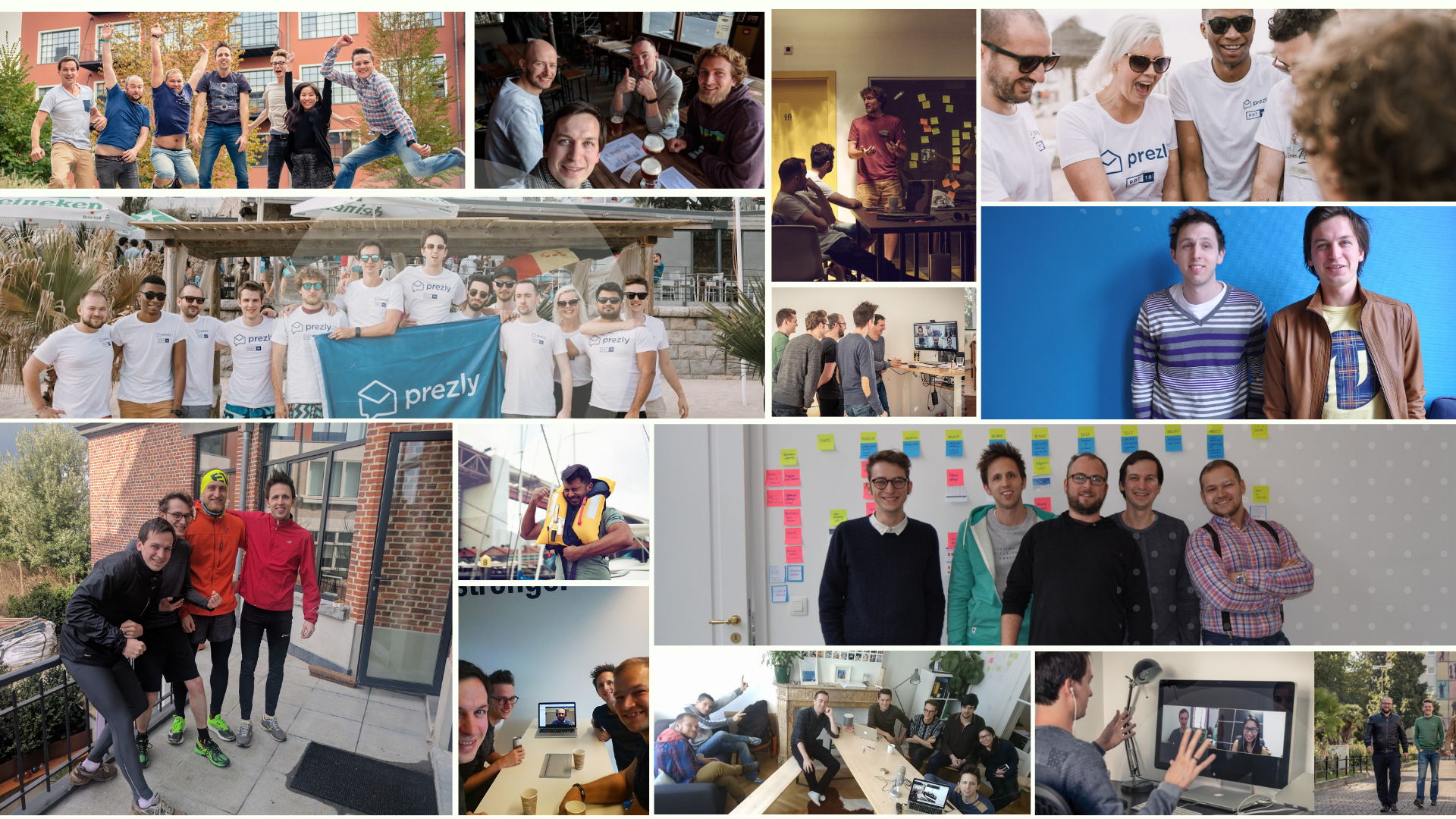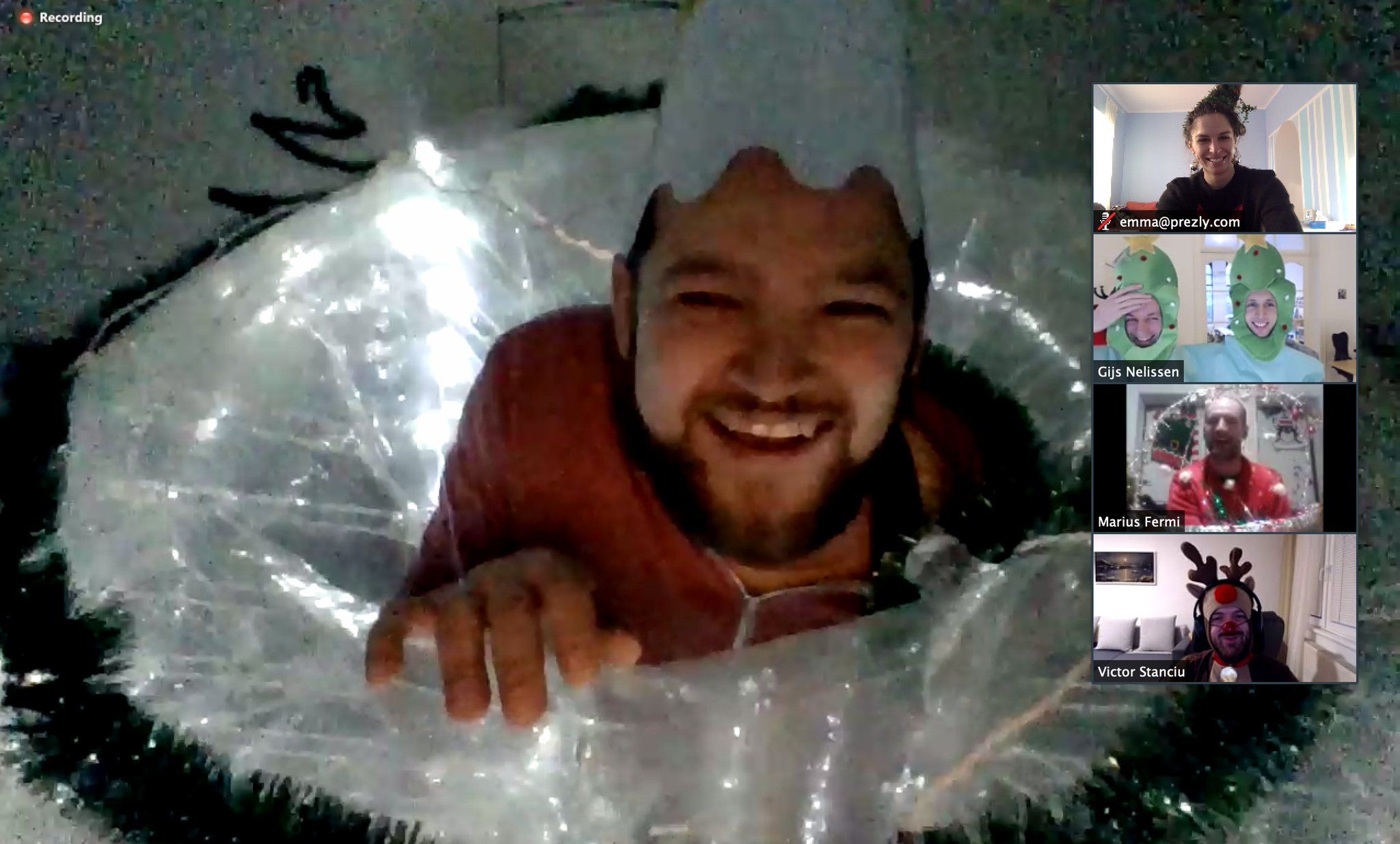
10 Things We Learned After 10 Years in PR Tech
We share our experiences and story, hopefully there are some insights and lessons in there to take away with you.
We started Prezly back in 2008. 10 years ago! In tech time that is like a century ago. Check this out this post from Wired:
On that list? GPS, USB, Android, and Apple's App Store!!!
I mean to give you an idea about what the Internet was like 10 years ago, check out our website then and now:

Needless to say, we have learned a lot from this 10-year journey. Here are some of those lessons:
Cheesy, I know, but... man, we learned this one later than I would have imagined. When you start a business you feel like, all of a sudden, you know nothing. You start to overthink it and deep dive into "best practices" and what used to feel like the right thing to do gets clouded by all the "expert" advice you receive. Some of it is worthwhile, some of it needs to arrive on its own time, and some is just garbage.
This has happened on a few occasions, big and small, but the one that frustrated us the most was not going all-in on a Product First approach sooner.
Product First is the idea that a company will focus on making the best product for their target market and then sales comes secondary and as a result of having a good product.
We knew in the back of our heads that it was the right path, it was always there without having a name. Remember, 10 years ago there was no "Lean Startup" book.
But it took us a long time to implement whole-hog as a business strategy.
We tried to go sales-first, and it just didn't feel right. This approach felt icky.
At first it felt great to reach out to people who genuinely could enjoy using Prezly. The problem was that it felt bad to bother people where you were unsure of their needs. It was inefficient, ineffective, and we felt we were annoying.
I hated bothering people. It always felt like we needed to sell Prezly to be more or bigger than it was instead of being happy and proud of the product and what it was able to solve. There would be times where I would want to be very honest with prospects and tell them we weren't a good fit, but this quickly makes outbound sales inefficient.
It made it clear that the product should make the sales, not the sales making the product.
So our experiment into sales-first only made us realise that we needed to go back to our roots and continue the product first route. We are frustrated we didn't do it sooner, but glad we corrected our course.
We didn't hire our first employee until 2015, 8 years after we started working on Prezly. We felt that a remote setup would be ideal to attract better talent, especially technical talent.
We didn't opt for an all-remote team at first, as some of the commercial functions like marketing and sales were on-site.
But what happened was unexpected. Having a team that is half-remote is more isolating than having everyone remote. It becomes frustrating for all team members, not just those who are working out of office. Here is why:
- Communication is hard with 50% of the team present. From meetings to decision making, things get easily lost or miscommunicated. This leads to morale problems, expectation impairment, and information inequality across teams.
- There is a cultural or social disconnect. Those who are not in the office miss out on conversations, meetings, and inside jokes that happen offline. The type of bonding that happens in person makes those working remote feel less-than, even though they are definitely not.
We learned that if you are going to do it, you cannot do it half-assed. So we went all-in.
This was one of our best decisions. As a company, this was the only way we could grow sustainably and attract the right talent. When people aren't geographically tied to a location, you tend to get a naturally diverse, interesting team made up of different backgrounds and experiences.

Fun fact: most of our employees do not even live in the countries where they were originally born. This says a lot about the type of people we recruit. They like freedom, and we like to give it to them. It is one of the biggest perks on both sides of this hiring scheme.
🎄 All you need on this #FestiveFriday is a traditional Ukranian Christmas ornament:
The cons? We don't get to go out after work to bond and we sometimes lose good people because they aren't cut out for the remote workstyle.
But these are things we take in stride. We make sure to have retreats every year where we get everyone together, and we often bring teams together in Leuven, Belgium where our HQ is.
Prezly started out as a newsroom solution with a simple email component. You could send updates and campaigns to a list of email addresses. But about 5 years ago, we realised that this wasn’t enough, and we had to double down on the ‘contact list management’ component.
So to back things up a bit, we built Prezly because our time working at agencies showed us two very important things:
- With more digital channels, PR could only become more successful
- No one seemed to be moving fast enough to take advantage of this
After a while, we noticed that something toxic was happening: people viewed digital channels and email as a quick and easy way to spam the hell out of their contacts. Spray and pray became the norm. We realised something else equally important:
- The only way PR would achieve long term success in the digital space was to not lose sight of the one thing that makes PR PR - relationships.
So when we added the CRM to Prezly we tried to make sure that it would emphasise those relationships and provide tools for nurturing them. People could organise and segment their contacts with appropriate labels of their choosing, see a timeline of interactions, and put faces to names. Users can personalise emails and see open/click rates to judge their performance.
As we go forward, we have seen a validation of that hunch. Our product is going to continue to evolve to reinforce the relationship aspect of PR. New media and new tech always provide a temptation to cut corners to reach the most people, but long-term it is just plain ineffective.
We want PRs to achieve success through relationship building because of and in spite of technology.
Even today we see that the PR industry, from agencies to in-house corporates, moves slowly when it comes to adopting productivity software and embracing technology.
We thought that an industry so into media and trends, wouldn’t be so stuck in its ways. But lo and behold, it is. It seems that PR is such a fast-paced industry that it won’t stop to fix its processes because any perception of slowing down is seen as failure.
Back in the day, we ran into resistance in large corporations, because they were convinced that on-premise software was the way to go. We underestimated the amount of time it would take for that to change.

Today, most companies have embraced cloud-based software (Hooray!). But from time to time we still encounter that ‘Do It Yourself’ mentality which is a roadblock for progress.
Sometimes building your own solution makes sense if you have the resources and the expertise. But most of the time, the project just falls on the floor. We have talked to companies who have decided to build their own newsroom solution and piecemeal together their CRM and email provider to create something like Prezly. When we follow up with them later on, nothing has materialised. Either they didn’t have the resources, the time, or the drive to get it done. Their need remains, and their problem unsolved.
The ironic thing here is that most of the time it is the IT department that will block the adoption of a solution like Prezly, saying they can build it. Yes, you can build it, but will you? And will you maintain it?
When you start making software, you quickly realise that building things is hard, and no matter how much you test, things will come out buggy or clumsy. A lot of humility and humanity is required.
That is why you cannot offer software without the service part. Having excellent customer care and support is essential when building something new and beyond. B grade software with A+ service can still be seen as A grade software. Not the case with B grade software with C level service. Ouch.
We learned early that truly caring about customer care made a big difference and increased the tolerance-level when it came to our software. Even today, with a more mature product (less bugs), bugs are still part of life but if we want to continuously raise the bar, we know that customer care can’t be left hanging.
A year after we hired our first employee we instated “Client Day” where we would rotate client support responsibilities through all departments. We thought (and still think) it is crucial that everyone in the company is aware of client needs, issues, and can have a conversation with them.
The result? People are more responsive and understanding (both our team and the customers).
Prezly is a tool that has multiple users. There are those people that use Prezly to publish great press releases and send PR campaigns, and there are those people who receive those releases and campaigns. So we realised early that it was not enough just to build something that was useful to our direct clients, but it had to be useful to their stakeholders.
- What makes them tick?
- How do they want to be approached?
- How do they use the content they receive?
- Are they happy to receive a Prezly press release or email pitch?
But apart from this we continually come up against this persistent trend when we speak to prospects looking for PR software: a majority are looking for contact databases.
Some might say we are dumb for not acquiescing to this request. But we think differently.
We won’t be offering contact databases.
We do not want our platform being known for practices like spamming. We require customers to bring their own contact databases with them, and then build on them inside the tool.
On a personal note, we learned this lesson our own by stepping outside our values for convenience. This past year we wanted to learn more about how journalists perceive their relationships with PRs and we began to run a survey. Instead of approaching people we knew or had some kind of relationship with, we decided to use a purchased list of contacts.
One journalist so deftly pointed out the irony of our tactic.
@prezly Why are you spamming journalists' personal gmail accounts? This is the epitome of bad communication
Many who did answer the survey did report that the value they gained from being part of these lists was minimal. Most of what they received was irrelevant and it showed that PRs weren’t doing their homework to make the right first approach.
Once we do finish the survey we will publish the results! Stay tuned :)
Talking to clients
As a new startup looking to launch we made a few mistakes, like most do. One of them was that we did a lot of assuming when it came to building the product. There was minimal validation from people who were going to use the system. We did this because we were ignorant as to how to do product development correctly. Remember it was 2008.
Since then we have made it an initiative to speak to customers regularly and also talk to their stakeholders in order to build a better product.
Talking to the team
Not only talking to clients is important, but having an open line of communication to your team is just as crucial. We learned that we needed to be very human in how we approach our team to make sure that people stay happy and motivated. It’s not just about building a healthy company through cash flow, but also about making you and your team has fun and feel rewarded while doing this.
There are many shortcuts to growth and many ways to make a dollar. And when you are bootstrapping your business, temptation to do something for a quick buck is real.
In the last 10 years we have had a lot of choices to make:
- Do we buy and/or sell contact data because people keep asking for it?
- How do we manage privacy on newsrooms?
- Do we run ads on newsrooms?
- Do we fire clients who abuse their contacts and use the system to spam?
This is why having a clear mission and set of values has been important to us. We know that it is our core belief to care about our clients and their ability to form and nurture relationships.
Over the years we have learned that leading by example and doing what we believe is the right thing has always helped us, not hindered us. This inspires our staff, and keeps them happy because they know what to expect from us. We have been honest with our team about these decisions, even the hard ones, careful not to sugarcoat the truth.
To make and keep your staff happy it’s important to lead by example.
Growth is not our number 1 metric and there is a bigger mission here.
And on that note...
We could have gone the venture capital route of starting a business, but we decided not to. Over the years we have learned how valuable this really was to us.
Yes, you might argue that our growth was slower because of this, but sometimes slowing down is better. You need time to figure out your team, the product, and the market fit. Putting a deadline on our company growth with VC funds wasn’t right for us.
We actually talk a lot about this in a Medium article we posted in 2017, most of which still rings true:
We went full time in 2013. We were 3 founders with families and savings to hold us over. The first year was tough, and we had to make decisions that allowed us to pay the overhead costs before we could even consider paying ourselves.
One of the things that this did was make us very focused on reaching the next goals and milestones out of that bare necessity. So when we finally started hitting a successful stride, we didn’t really stop to celebrate, we just kept going.
We even forget we are making progress sometimes because we are so deep in it. Our family and friends often have to remind us where we came from and how far we have come!
Now we are trying to unlearn this and start celebrating our successes.
Not only because it is a nice thing to do, but because as founders we need to stop focusing on putting out fires and focus on planning for next fire season. Being a founder of a startup that turns into a sustainable business requires a shift in responsibilities. We need to switch our mentality to be more proactive than reactive to keep being successful.
We have no one to answer to but ourselves, our employees, and our clients, who all deserve to know we care about the work they do.